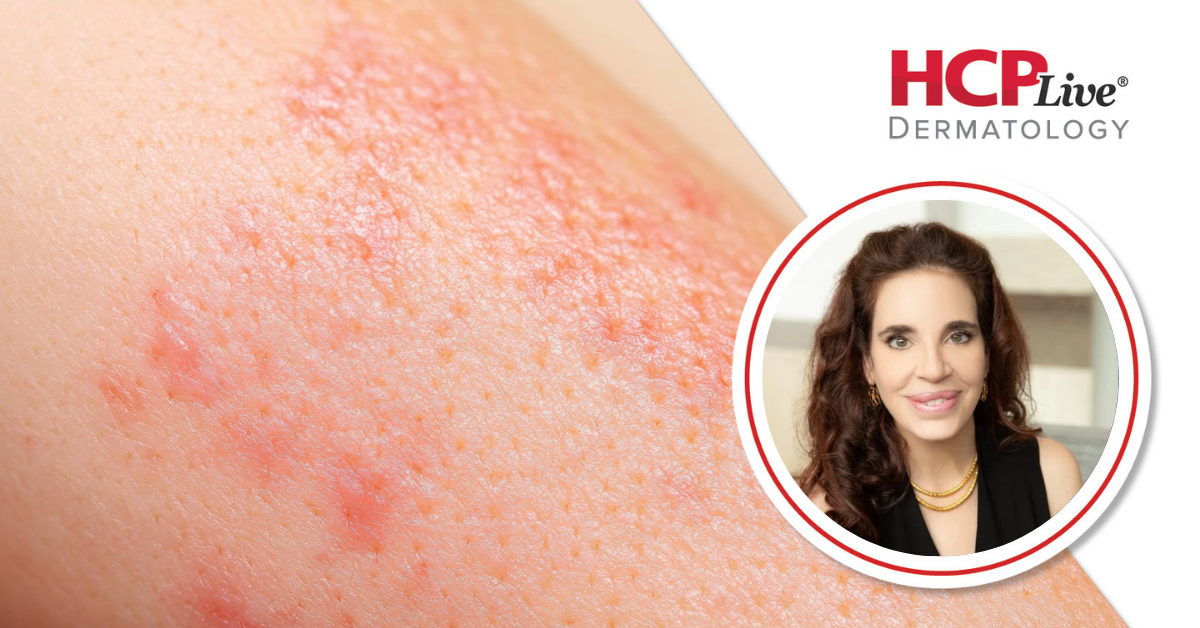Health
Advancements in Dermatology Highlighted at SDPA 2025 Conference

At the Society of Dermatology Physician Associates (SDPA) 2025 Fall Conference in San Antonio, Texas, advancements in dermatological care and the evolving role of physician assistants were key topics of discussion. Cynthia Trickett, MPAS, PA-C, a prominent speaker and PA at North Dallas Dermatology Associates, shared insights with HCPLive regarding the conference’s focus on collaboration among healthcare professionals and the latest developments in dermatology.
Trickett expressed enthusiasm for the conference, noting its significance in her hometown. “I have been lucky to spend a lot of this conference engaging with industry,” she said. The shift in industry attitudes towards collaboration was particularly noteworthy; Trickett remarked on how partners are increasingly eager to hear the perspectives of physician assistants (PAs) and nurse practitioners (NPs).
“NPs and PAs in the dermatology space are going to outnumber the dermatologists,” Trickett stated, signaling a substantial change in the healthcare landscape. She emphasized the importance of including these voices in discussions about dermatological care.
The conference also highlighted the emergence of new educational initiatives aimed at supporting newly qualified PAs. Trickett has participated in the “Emerging Scholars” program for four consecutive years, which focuses on educating new PAs about conditions such as psoriasis and psoriatic disease. She noted, “These opportunities of learning are so advanced and amazing,” reflecting on the differences in training compared to when she began her career in 1998.
Recent data presented during the conference indicated improvements in treatment outcomes for psoriatic diseases. Trickett mentioned that advancements are leading to higher clearance rates for skin conditions and setting new benchmarks for acceptable treatments for psoriatic arthritis. “We’re getting better at achieving higher clearance rates in skin,” she remarked, highlighting the positive impact on patient care.
The conversation shifted to topical treatments, where Trickett pointed out a significant change in the approach to topical steroids. She explained that the long-term use of topical steroids is often not appropriate for treating chronic inflammatory diseases due to the potential for serious side effects. “There’s been a shift in dogma in using topical steroids,” Trickett noted.
She elaborated on the development of safer, more effective topical treatments that allow for longer usage without the adverse effects associated with steroids. These new options are revolutionizing patient care, especially in sensitive areas. “Having these advanced topicals to use for longer periods of time… has been revolutionary,” she stated.
Trickett also addressed concerns regarding topical steroid withdrawal (TSW), acknowledging its existence while emphasizing that it should be approached with caution. “We need to have a healthy respect; we need to be aware that it can happen,” she said. However, she noted that instances of extensive body surface area involvement are relatively rare in her practice.
The discussion further explored the role of topical Janus kinase (JAK) inhibitors, which Trickett described as groundbreaking for treating atopic dermatitis. She stressed the importance of “steroid stewardship,” paralleling it with other medical stewardship initiatives. “If there’s a better way to treat long-term and chronic inflammatory diseases with fewer long-term side effects, we should be doing that,” she concluded.
As the dermatology field continues to evolve, the insights shared at the SDPA 2025 conference underline the importance of collaboration and innovation in improving patient outcomes. The growing recognition of PAs and NPs reflects a changing landscape where diverse voices contribute to shaping the future of dermatological care. The event not only showcased new developments but also reinforced the commitment to collaborative practice in healthcare.
-

 Science3 weeks ago
Science3 weeks agoInventor Achieves Breakthrough with 2 Billion FPS Laser Video
-

 Health4 weeks ago
Health4 weeks agoCommunity Unites for 7th Annual Into the Light Walk for Mental Health
-

 Top Stories4 weeks ago
Top Stories4 weeks agoCharlie Sheen’s New Romance: ‘Glowing’ with Younger Partner
-

 Entertainment4 weeks ago
Entertainment4 weeks agoDua Lipa Aces GCSE Spanish, Sparks Super Bowl Buzz with Fans
-

 Business4 weeks ago
Business4 weeks agoTyler Technologies Set to Reveal Q3 Earnings on October 22
-

 Entertainment4 weeks ago
Entertainment4 weeks agoMother Fights to Reunite with Children After Kidnapping in New Drama
-

 World4 weeks ago
World4 weeks agoR&B Icon D’Angelo Dies at 51, Leaving Lasting Legacy
-

 Health4 weeks ago
Health4 weeks agoCurium Group, PeptiDream, and PDRadiopharma Launch Key Cancer Trial
-

 Science4 weeks ago
Science4 weeks agoNorth Carolina’s Biotech Boom: Billions Invested in Manufacturing
-

 Health4 weeks ago
Health4 weeks agoNorth Carolina’s Biotech Boom: Billions in New Investments
-

 Entertainment4 weeks ago
Entertainment4 weeks agoRed Sox’s Bregman to Become Free Agent; Tigers Commit to Skubal
-

 Top Stories3 weeks ago
Top Stories3 weeks agoFormer Mozilla CMO Launches AI-Driven Cannabis Cocktail Brand Fast









